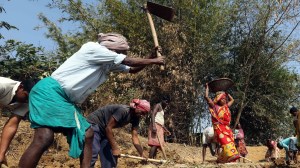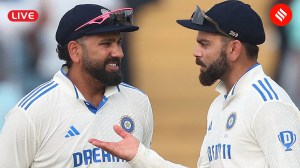A DAY BEFORE the Supreme Court designated 39 lawyers as senior advocates last week, a proposal for reframing the “application” process was made to Chief Justice of India D Y Chandrachud, The Indian Express has learnt.
Sources said senior advocate Kapil Sibal, president of the Supreme Court Bar Association, and Solicitor General Tushar Mehta together brought up the issue with the CJI at a meeting on August 13, a day before a full court of the Supreme Court met to make the final decision. The interviews of shortlisted lawyers had already been held by then.

“There is a feeling that the designation has to be conferred and not simply be an application where anyone who meets a minimum criteria gets the prestigious tag,” said a senior lawyer familiar with the development.
It is learnt that during the meeting with the CJI, Mehta also briefly brought up the case of human rights advocate Vrinda Grover, who had applied for designation as senior advocate but did not make it to the interview list.
“The issue was raised not to bat for one name or oppose another but rather for a review of the method itself,” Mehta told The Indian Express. When contacted, Sibal declined to comment.
There has been disquiet in the Bar, with senior advocates expressing disappointment over Grover being left out.
Grover, 60, an alumnus of St Stephen’s and New York University, has over 35 years of practice. From the sexual violence in 2013 Muzaffarpur riots to the sexual harassment complaint against former Chief Justice of India Ranjan Gogoi, she has taken up cases involving women’s rights. In 2023, the Human Rights Council, an intergovernmental body within the United Nations, appointed Grover to the three-member panel probing human rights violations by Russia in Ukraine.
Story continues below this ad
“Vrinda’s competence is recognised by all her peers, including professional opponents who may be ideologically opposite to her. She is fearless, with academic credentials and has a pan-India presence, appearing not just in the SC but in high courts across the country. It is difficult to fathom what could have led to her exclusion even from the preliminary stage of an interview,” senior advocate Raju Ramachandran said.
It was only in 2017 that the SC, in a three-Judge Bench verdict, overhauled the process of designation. The SC moved away from voting by secret ballot by Judges to a formal, application-based decision on pre-decided grounds by a selection committee.
Senior advocate Indira Jaising had challenged the earlier system on the grounds that it was flawed, arbitrary and unfair. The SC evolved a process where every application was graded and awarded points based on factors like seniority, number of reported judgments and publications, which would then be followed by an interview with the selection panel.
Last year, when the 2017 rules were challenged in court, the government also sought reconsideration of the process.
Story continues below this ad
A Bench headed by Justice Sanjay Kishan Kaul (now retired), then noted: “An endeavour was made by the Union of India to reopen the 2017 judgment itself. That, however, is not our remit in the present applications. We are not at the stage of a review or a reference of the matter to a larger Bench.”
The Bench, however, tweaked the points system, reducing the weightage for publications and adding these points for judgments delivered. The name of an advocate in judgments indicates “legal formulations advanced by the advocate in the course of the proceedings of the case, pro bono work and domain expertise.”
The SCBA had argued that “very few actively practicing advocates are able to devote time to writing books or articles and, in any case, publications were not a reflection of advocacy skills.”
In 2017, the SC rules had allocated 10 points for advocates with 10-20 years of experience and 20 points for 20-30 years of experience. In 2022, the SC tweaked this rule too, after complaints that “an applicant with 11 years of practice and an applicant with 19 years of practice would get the same points in this criterion.” The SC said a point can be allotted for each year at the Bar to ensure equity.
Story continues below this ad
In the latest round of designations on August 14, the SC designated 39 advocates including Additional Advocate General of Assam and BJP spokesperson Nalin Kohli; BJP MP Bansuri Swaraj; Additional Advocate General of Punjab Shadan Farasat; former Uttar Pradesh standing counsel M R Shamshad; Advocates on Record Dr Anindita Pujari, Aparna Bhat, K Parameshwar and Ashok Panigrahi as senior advocates.









